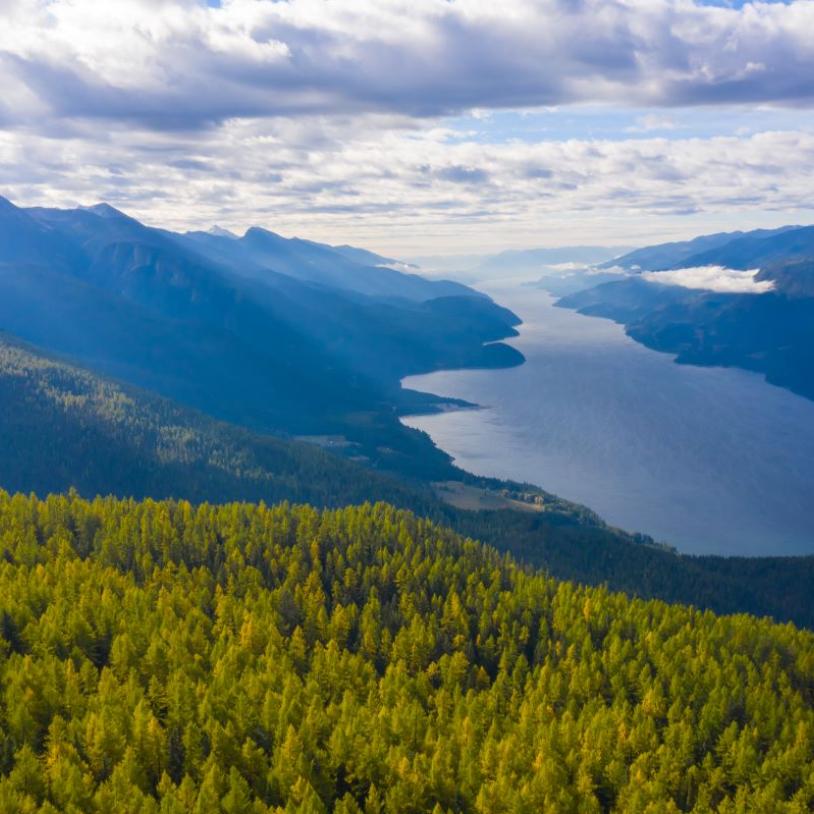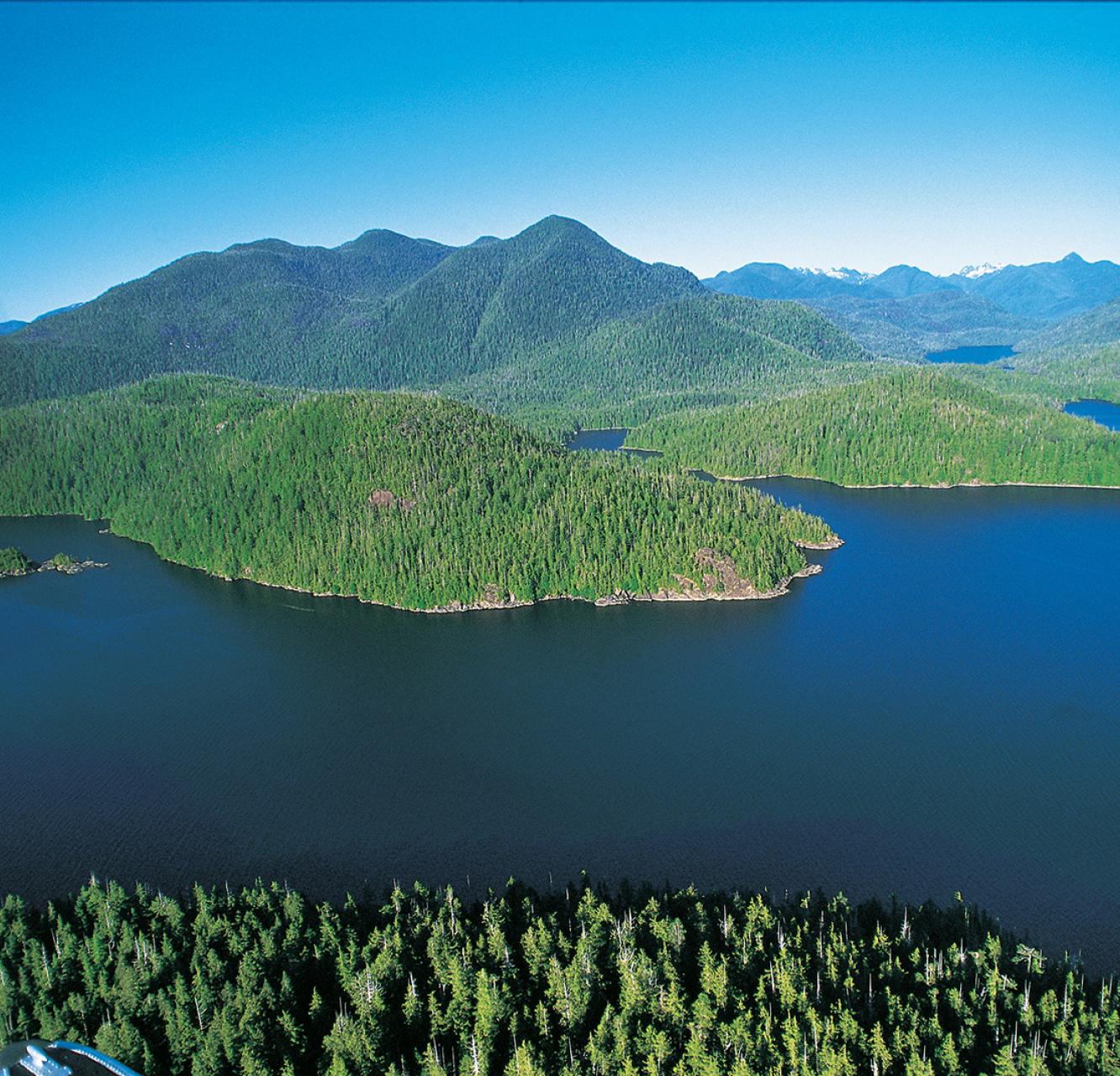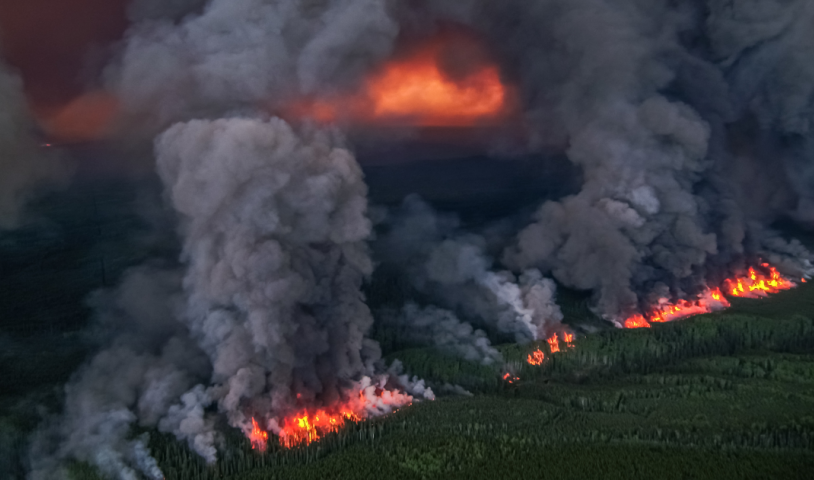Flores logging hot button issue for environmentalists and First Nations
Thursday, December 16, 2010
This week the Clayoquot Sound Conservation Alliance presents the Ahousaht First Nation's band council alternatives to logging for economic stability
This week the Clayoquot Sound Conservation Alliance (CSCA) set up a presentation for the Ahousaht First Nation band council regarding alternatives to logging Flores Island in an attempt to keep the ancient cedar forest intact.
The CSCA is comprised of the Friends of Clayoquot Sound (FOCS), Greenpeace, Forest Ethics, Sierra Club, NRDC and the Western Canada Wilderness Committee (WCWC).
According to Bonny Glambeck, FOCS, the meeting was originally set for Monday, but was postponed tentatively to Wednesday in Ahousaht on Flores Island, which is about a 45-minute boat ride from Tofino's harbour.
The presentation is intended to show economic alternatives to logging reportedly proposed by Iisaak Forest Resources Ltd. for the eastern side of Flores, which has seen marks for cutblocks and helipads cleared. Iisaak is owned by five Nuu-chah-nulth bands including Ahousaht.
The WCWC claims that if the logging goes forward, a memo of understanding from 1999 will be broken. The memo agreed that pristine areas of Clayoquot Sound would be protected and managed for their non-timber values while logging could occur in areas no longer intact.
Glambeck said economic stability could be had by conservation efforts such as the Great Bear Rainforest Agreement, which has the potential to bring in a lot of money.
"We've been talking with the First Nations about conservation solutions to protect intact areas under the memorandum of understanding and to look at ways to provide conservation funding," Glambeck told the Westerly Tuesday.
The Great Bear effort saw a $120 million "funding package for conservation management and ecologically sustainable business ventures in First Nation territories," according to its website www.savethegreatbear.org
It was established in March 31, 2009 three years after the government and First Nation communities reached an agreement following protests, market campaigns, land-use planning and negotiating.
Forest Ethics, Greenpeace and the Sierra Club of BC is part of that project.
"The funding package was used by the community," Glambeck said, noting the talks are too early to determine how much money the Ahousaht community could see or how it would be used. "It hasn't been worked yet, it's still in the preliminary stages."
This is a message that has struck a chord with Ahousaht's chief band councillor John O. Frank.
Frank said he is looking for an economic alternative to industry because at the end of the day it's about keeping coins in Ahousaht's pocket.
"We have to take a serious look at why we want to log," Frank told the Westerly in a phone interview Tuesday morning. "Ahousaht pumps out a lot of coin and I don't understand why."
Frank said the community's share is in the hundreds of thousands of dollars to be a part of Iisaak.
"I hope I don't rattle the chain and don't cause a problem with the hereditary chiefs, but as the elected chief I don't understand that vision and I'm only one in 2,000. If I had my way we would keep the pristine mountain and the pristine area and then one day our grandchildren will look at it and think, 'Wow, this is something somebody stood up for.'"
However, Frank also stressed that a decision will be made as to whether or not the eastern side of the island will get logged and what it comes down to is money.
"I see the environmentalists come in with cheques [potential conservation fund] and say there are alternatives to our economics," he explained. "And that looks more like something the community can use."
"We see what's in our treaty territory and Ahousaht can control it in a good, smart way. In a way with the rest of the people where we stand up and say we keep the minerals from the air and our trees, our forest cleans that air."
"If it weren't for the Great Bear [Rainforest] we'd be in a lot of trouble.... We have an oxygen tank and we have people sensitive enough to keep us breathing and we want to be a part of that team."
Frank said he's also questioning whether or not a copper mine on Catface Mountain is the right choice as well and that the community will deliberate and research every avenue to make a final decision.
"Is it better to have a loonie in our pocket and suffocate?" he said. "We would rather have air and no loonie in our pocket."
He said when the day comes for a decision the community may look at a referendum.
"A lot of people on the street say the mine is not worth the money," Frank said. "I have to weigh everything out as a leader."
Frank said a more viable alternative to industry could come in the form of bringing a sports fishing venture and tourism board interests, which could generate income more directly in members' pockets.
He said the community has also come a long way from its past 85 per cent unemployment rate several years ago and facing mass suicide attempts to a place where the unemployment rate has dropped to about 18 to 20 per cent.
"I'd like to see these trees. They can be here for another 1,000 years," he said.
To stop logging or to stop mining, those decisions will come down to the band weighing all options seriously, Frank said. But, if the other four votes in Iisaak decide to log and Ahousaht is the odd vote out then logging will move forward.
WCWC's Joe Foy will also be at the meeting with the alliance. He said everyone knows what's going on in Clayoquot Sound and this meeting or conservation effort is not a challenge to the First Nation communities and the right to govern their territorial lands.
"Clayoquot Sound is an amazing place because of the First Nation cultures that are there," Foy told the Westerly. "The goal remains to find a way to fund First Nation communities and to protect the environment."
He said the groups want to work with the First Nations and Iisaak to find alternative areas to log to keep the company working and "doing what they need to do."
Foy said the group only asks for the time and space to sit down with the groups and look at positive solutions.
"At one time Clayoquot Sound was ruled by international logging corporations, but together we worked and changed that," he added.
WCWC and the FOCS have been urging the public to write the minister of natural resource and operations, a letter to deny any cutting permits for eastern Flores.
Ministry spokesman David Currie confirmed Iisaak holds Tree Farm License 57 in the area, but the government has not received a cutting permit request.
"We understand Iisaak Forest Resources is in the process of planning forestry operations on Flores Island," Currie said.
Iisaak Forest Resources Ltd.'s Derek Drake, general manager, did not respond to the Westerly's request for an interview by press deadline.





